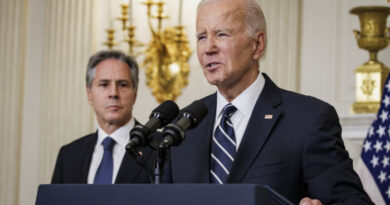Doubts about Integrity Surround National Anti-Corruption Commission
During a tense interaction with a Parliamentary committee and the resignation of a high-ranking official, more uncertainties arose regarding the organization that declined to investigate Robodebt.
The National Anti-Corruption Commission (NACC) faced additional criticism following a confrontational exchange with several Senators during a joint Parliamentary Committee hearing on Nov. 22, rather than ending the string of negative publicity it has experienced since its establishment.
News emerged this weekend that a former senior officer resigned due to “alarms” regarding integrity issues.
Prior to the hearing, the Commission, which had already come under fire for its refusal to pursue six referrals from the Royal Commission into Robodebt, faced further scrutiny over its decision-making.
The Commission had pledged to appoint an “independent, eminent person.” However, plans to appoint former solicitor-general Justin Gleeson were abruptly halted due to concerns from the NACC about potential reactions from a former Coalition minister who was under investigation.
Why Did the NACC Not Pursue?
The decision not to pursue the “Robodebt Six,” compounded by the delayed announcement of this decision to the public almost a year later, was the central focus of the questions directed at Commissioner Paul Brereton and other senior staff at Parliament.
The NACC inspector, Gail Furness, highlighted the perception of bias affecting the decision-making process since Brereton admitted to a “close association” with one of the individuals referred for investigation. Despite this acknowledgment, he remained involved in the decision-making process up to the final meeting, where Deputy Commissioner Nicole Rose gave the official approval.
Senator Karen Grogan, the Chairperson, extended the hearing after warning the Commissioner about pending questions from the committee.
Deputy Chairperson Helen Haines was the first to question why, despite the resources available to the NACC as mentioned by Brereton, the Commission chose not to act on the Royal Commission’s referrals.
Rose, deferring to as “her decision,” confirmed that inadequate resourcing was not among the top reasons for their inaction.
Instead, concerns regarding inconsistent outcomes, doubts about reaching the corruption threshold, and the Commission’s inability to directly penalize individuals found guilty of corruption were cited as primary reasons for their decision.
Senator David Shoebridge’s questioning particularly sparked tension during the hearing.
He raised concerns about public disquiet surrounding the NACC’s handling of the Robodebt referral, to which Brereton responded that such unease was only present in “some quarters.”
Shoebridge persisted, highlighting a report by an eminent State’s Counsel that criticized the Commissioner’s conflict of interest management and decision-making processes.
Further inquiries by Shoebridge into the appointment of an independent reviewer and potential conflicts of interest elicited defensive responses from Brereton.
Role Under Fire
Brereton’s responses to questions regarding his role in the Robodebt referral and appointment of an independent reviewer faced extensive scrutiny from Committee members, including criticisms from Labor MP Jerome Laxale.
Senior Staffer Resigns, Citing ‘Integrity Issues’
Subsequently, the resignation of a senior staff member within the NACC raised further concerns about integrity issues within the organization, marking another tumultuous development following the challenging hearing before the Committee.




